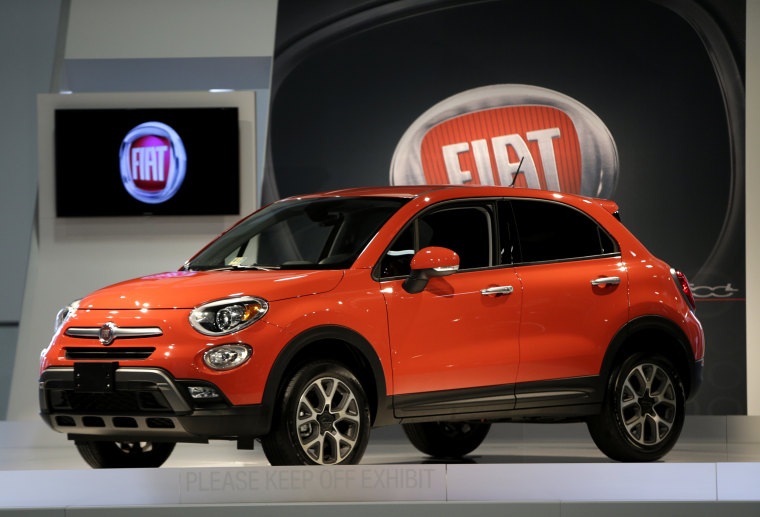The boards of Fiat Chrysler Automobiles and Groupe PSA have signed a binding merger agreement to create the fourth-largest automaker in the world, the companies announced Wednesday.
In a conference call with reporters, FCA CEO Michael Manley said that "We've been clear that, as a result of the merger, there will be no job losses or plant closings." Meanwhile, Tavares, who will become CEO of the combined company, previously had said there are no plans to eliminate any of the many brands currently offered by the two carmakers.
During the call, Manley said savings, which are forecast to run into the billions of dollars, will come increased efficiencies, such as in the development of future battery-electric drivetrains, as well as reduced purchasing costs.
Combined sales of 8.7 million vehicles will position the as yet unnamed new venture as the fourth-largest automotive manufacturer, behind only Volkswagen, Toyota and the Renault-Nissan-Mitsubishi Alliance – but ahead of General Motors.
Finding a third partner was a key goal of FCA’s founding chief executive, the late Sergio Marchionne, who openly courted potential allies including GM and VW over the years. Manley, who took over the helm after Marchionne’s unexpected July 2018 death, continued the search. Last spring, he nearly pulled off a merger with PSA’s French arch-rival, the Renault Groupe. That deal collapsed at the last minute due to concerns raised by the French government, which held control of Renault, that the merger might disrupt the Renault-Nissan-Mistubish alliance.
The French state also holds a 12 percent stake in PSA but officials have openly backed the merger with Fiat Chrysler.
The plan still faces intense scrutiny by antitrust regulators in the U.S. and Europe but is widely expected to be approved. Company officials said in a joint statement that they expect the process to take between 12 to 15 months to complete.
The two automakers inked their agreement the same day as the United Auto Workers Union ratified its new, four-year contract with FCA. The settlement, covering 47,000 hourly employees, ensures that the new company won’t be able to close any of its U.S. plants while the agreement is in effect through 2023. It calls for $9 billion in new investments during the next four years while securing or creating 7,900 jobs.
Separately, PSA has said it has no plans to cut back operations in its home base in France.
But the new enterprise clearly will have to rein in costs. “The merged group will have to make massive savings and probably also close plants, even if the CEOs’ choice of words is different,” NordLB autos analyst Frank Schwope wrote after the binding agreement was announced.
Like the rest of the industry, FCA and PSA face major challenges ahead, including the global shift from conventional passenger cars to SUVs and other light trucks. The Italian-American automaker has been able to ride that transition quite successfully with its Jeep and Ram brands.
But PSA is stronger when it comes to the rise of battery-powered vehicles many expect to displace the conventional internal combustion engine over the next couple decades. The new company will have to invest heavily in electrification, as well as the development of the autonomous vehicles also expected to play a major role in the coming years.
Officially, the combined company will have its headquarters in the Netherlands, where FCA currently is based. It plans to retain major regional offices in Italy and France, as well as the combined corporate and technical center based just outside of Detroit originally built for the old Chrysler Corp.
Under the two company’s binding memorandum of understanding, Tavares will remain chief executive of the 50/50 merger. FCA’s Chairman John Elkann will retain that role after the merger. What is unclear is the role that Fiat Chrysler’s current CEO, Mike Manley will play, but two senior officials who were not authorized to speak beyond the public statement told NBC News he is expected to assume a position as chief operating officer.
In recent weeks, there had been some concern that the proposed merger might be impacted by General Motors' decision to file a multi-billion dollar racketeering lawsuit in which it accused FCA of bribing officials of the United Auto Workers Union to grant contract concessions putting GM at a disadvantage.
Though that required "due diligence" by PSA, in the end, said CEO Tavares, the French company decided to move ahead after it "came to the conclusion we fully support the FCA statement saying (GM's) claim is meritless."
